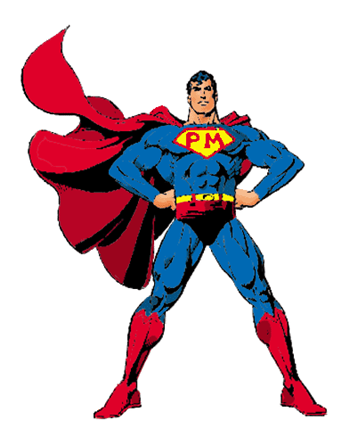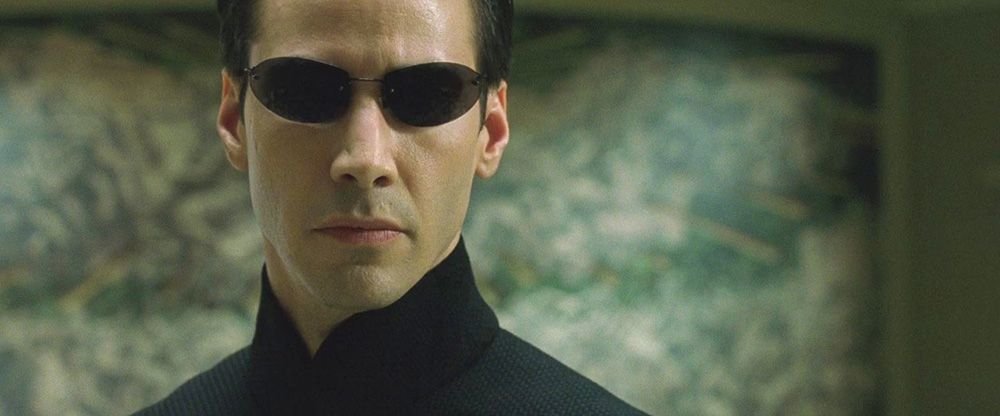What’s the story about?
Some time ago I had to conduct interviews to hire a Senior Project Manager (Senior PM). While I am not a Senior PM myself, I was the only Project Manager available at the time. I was given the task of assisting our HR Director, preparing all the theoretical and practical information and doing everything possible to get a realistic understanding of the professional level of potential candidates. Below, I describe my entire preparation process and present the main lessons I learned after this adventure.

PM is not a man, PM is a kryptonite Superhero.
Why did I get so serious with this task?
While working as a Project Manager at Diatom Enterprises, a custom software development company, I used to encounter situations when more hands were needed on new projects, and I could not participate in the interviews. As a result, the same scenario occurred every time: the team was assembled, the project started and after some time I needed to make changes – add new people, change their working style, etc. Now, in order to avoid this situation, I always participate in the recruiting interviews for the team that will work on my project.
Of course, the new Senior PM would not work with me on a single project. But everyone in our company, including myself, tends to perceive the whole company as one team; therefore, we all care about who joins us. Additionally, the task of interviewing a Senior PM would provide experience that I could use in future interviews with developers and give me a great overview of the responsibilities of a Senior PM.
I was also interested in expanding the team in order to build a MASSIVE Project Management Department at Diatom Enterprises. Together, we can take over the world!

Together, we can take over the world!
What is a good starting point when preparing for an interview?
As I said, I always try to participate in the interviews with the candidates who will work on my projects. Up to this point, though, I’d never interviewed a candidate with the same position as me or higher. So, I didn’t have a clear picture of the Senior PM that we needed to find.
To get a sense of the necessary skills and qualifications, I went to our COO, Evgueny Lemasov, and asked for a description of the kind of Senior PM that we were looking for. After that, I went to our HR Director and discussed the requirements for the Senior PM that would be included in the listing.
Before the HR Director finished her work on the listing, I started to read articles about interviews with PMs and tried to remember my own interviews at different companies.
After a few days of thinking, I started to prepare questions and tasks for future candidates. I will share some of these questions later in the article.
My main goal was to create a situation similar to a real work process where I could observe the candidates’ reactions to make sure that they would suit our needs.
The three main components of the preparation process included:
- Obtaining a clear picture of the qualified candidate
- Establishing a list of requirements and a description of the open position
- Identifying questions, tasks and simulated problems to check candidates’ skills and knowledge
What is the interview process for a Senior PM?
The first round of interview
Using the information I received about the skills and qualifications we were looking for, I prepared a list of questions to ask the candidates.
These questions were used during the first round of interviews to save time and filter out weak candidates or those that didn’t fit our strict requirements (having experience in other technologies, etc.)
At this stage, the questions were asked during an interview and consisted of theory, terminology and knowledge of book material. In my opinion, this isn’t the best way to get a complete picture of a candidate’s skills, but this stage is necessary to filter out the least experienced candidates. You can find a few examples of such questions below:
Please describe your experience with project management tools. What is your favourite tool? Why? Biggest project managed using this tool?
What are the main goals for the PM/Senior PM at any company?
What is KPI? Do you have experience working with KPI? Please describe the pros and cons of KPI based on your experience.
Please describe the agile methodology.
Have you worked on Node.js, React.js or Angular.js projects?

Give me more candidates!
The second round of interview
A PM is someone with excellent problem-solving skills. They always have a plan, strategy and goals to achieve during their work on the project. A Project Manager is not afraid of taking responsibility for their decisions.
To make sure that our candidates could handle these requirements, we devised a hypothetical problem scenario to see how they would react and how they would plan to solve it. To make it more stressful, we only allowed the candidates a short amount of time to come up with a solution.
I prepared several tasks that were used in the second round of the selection process. These tasks replicated working processes and standard problems that could happen on any project.
An example of such a task:
Your main developer/team leader decided that he needs to save parrots in South America and moved abroad. Project progress is around 50%, but you have realized that, during the preparation phase, you underestimated your work. What do you do? Please describe your main actions.
The third and final selection round
Project Management is often perceived as a stressful job, and the PM must not panic or make reckless decisions.

Neo never stresses. Be like Neo.
The third and last round of interviews was designed to weed out candidates that might make reckless decisions in a critical situation.
To assess this, I prepared a few client emails that our candidates needed to analyze in order to provide the best possible answer. In my opinion, a good PM would never receive this kind of email, but the best PM should be able to snuff out all the fire, think critically and find a way to solve the problem. An example of such an email is below:
Dear Bob,
This is getting very annoying.
To motivate you somehow, I have added your CEO to this conversation.
According to the agreement, the end-date of “Project A” was 2 weeks ago.
We are still waiting for a demo session to approve all your work and add adjustments if necessary.
Today we have to go LIVE!!!!
Bob, I’m very unhappy.
Please provide source code of the project, so I can find another company to continue development.
Best regards,
Mr. Brian
The selection process
After some time, our HR Director sent me invitations to interviews with several candidates. In total, we had around 10 interviews with different Project Managers that suited our needs according to their CVs, motivation letters and first impressions during the phone call.
The candidates were all very different from one another. A few of them had PhD degrees in computer science with tons of experience in software development. Some of the candidates had vast experience in the technologies that Diatom Enterprises specializes in C#.Net, Angular.js, Elixir, React.js and other technologies that made them stand out during the interview process.
Some of the candidates were very experienced and had very interesting perspectives, which helped them give unconventional answers to my questions, tasks and emails. Unfortunately, we also had candidates who didn’t know how to answer simple questions or how to solve typical problems – interviews with such candidates ended much more quickly.
It was great to talk with all the different candidates and watch them progress through the selection process. One Senior PM who ultimately joined our team had extensive technical and management knowledge. He was prepared to answer any question and had a few questions for me about specific working processes inside the company; for example, about project documentation and risk management.
During the second round of interviews, this candidate started to ask additional questions to get more information and understand the situation. By contrast, other candidates did not usually ask any questions; instead, they immediately started to guess the right answers. In my opinion, they attempted to evaluate the situation too quickly without gathering enough information, which led to answers that were too general. At Diatom, we believe that communication is key to success, and asking the right questions on time is one of the main qualities a good Project Manager should have.
During the final round of interviews, this candidate showed his excellent communication and problem-solving skills. After reading every fictitious letter from a furious client, he offered several possible actions that might solve the problem. By the end of the interview, we had exchanged several articles that we suggested the other should read.
Conclusion
This interesting adventure gave me priceless experience that I will definitely use in the future when interviewing my future team members and during my path towards becoming a Senior PM. I also managed to achieve the main goal: find a professional Senior PM who passed all the tasks with excellence. To be honest, I learned a lot from him during the interviewing process.
Here are three pieces of advice for interviewing a Project Manager. However, you would agree that you can use them, actually, for any position in any company:
- You need to have a clear understanding of what kind of candidate you need, including personal qualities and the full list of their responsibilities.
- You need to prepare a list of requirements and a description for the open position. There will always be skills and qualifications that are required and those that are preferred, and you need to know them before the interview process starts.
- Most importantly, you need to prepare all the questions, tasks and examples of critical situations that might arise during a project. In so doing, you can see how a candidate would cope with stress and unexpected situations. You should also have examples of typical situations that arise in your daily working process. This is a way to understand how a candidate would fit into your company and your team.
Now, I always follow these three simple points to optimize the interview process for my projects. Thank you for reading; I hope you have found helpful and useful information. If you have any comments or questions (remember – asking the right questions is gold!), feel free to contact us or comment on this article!